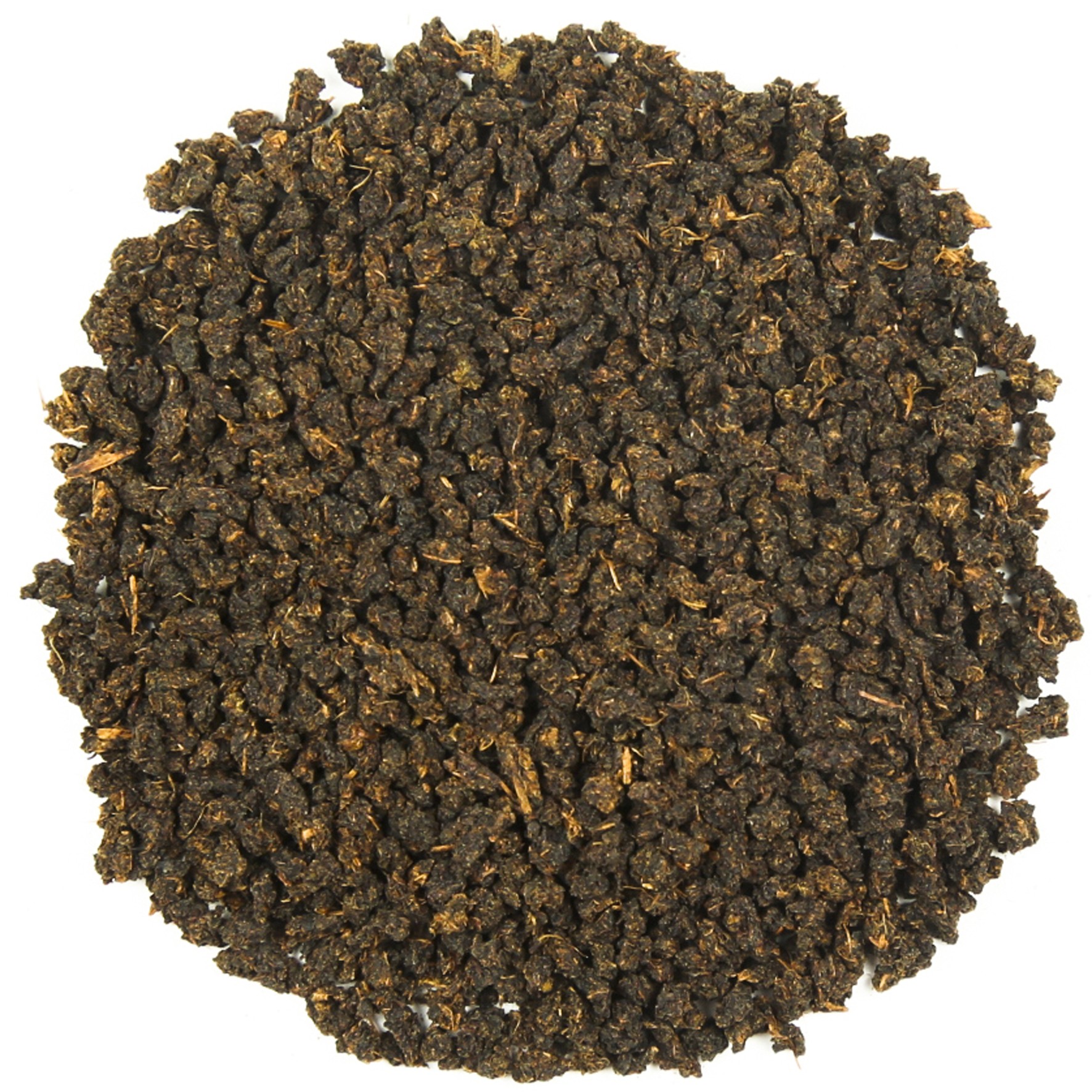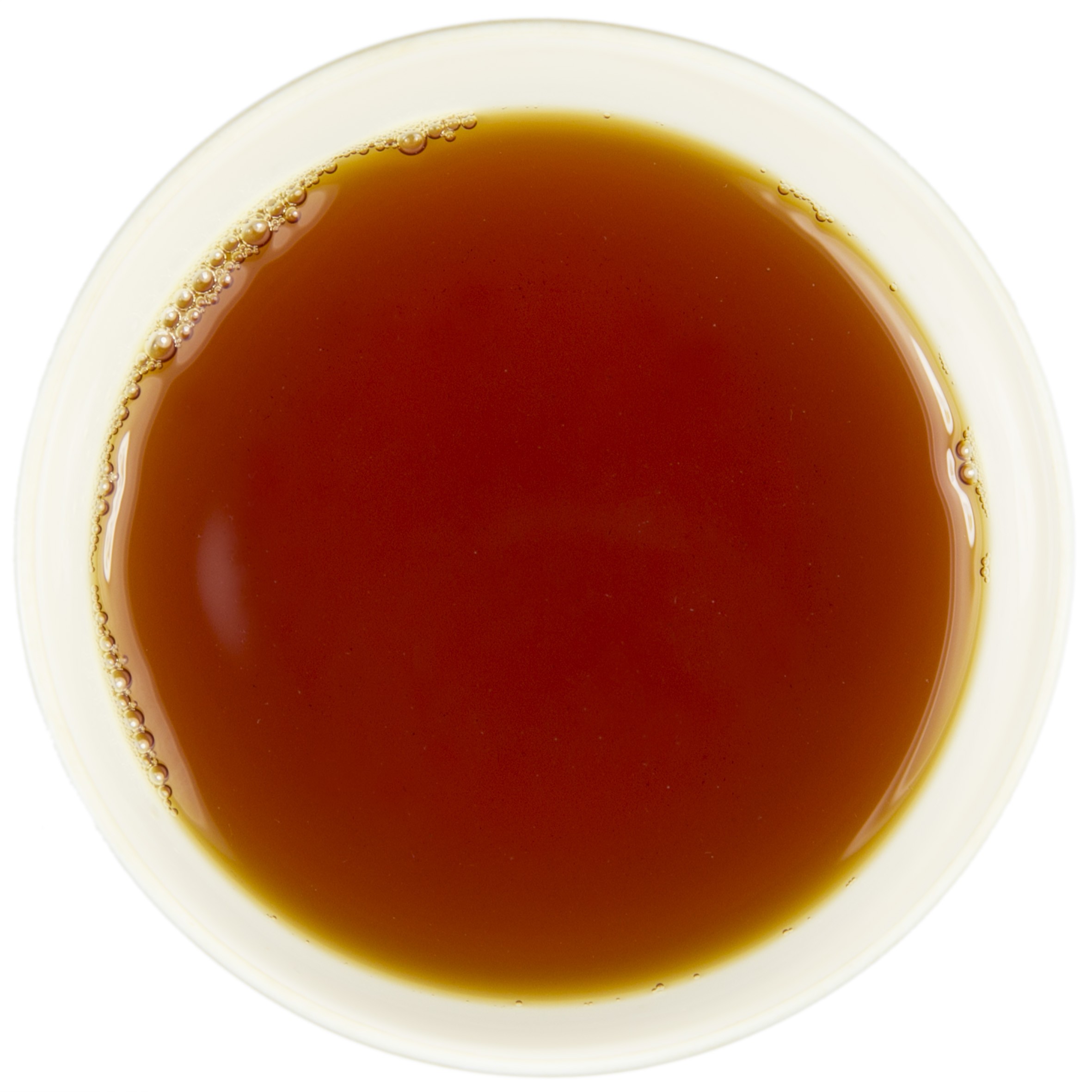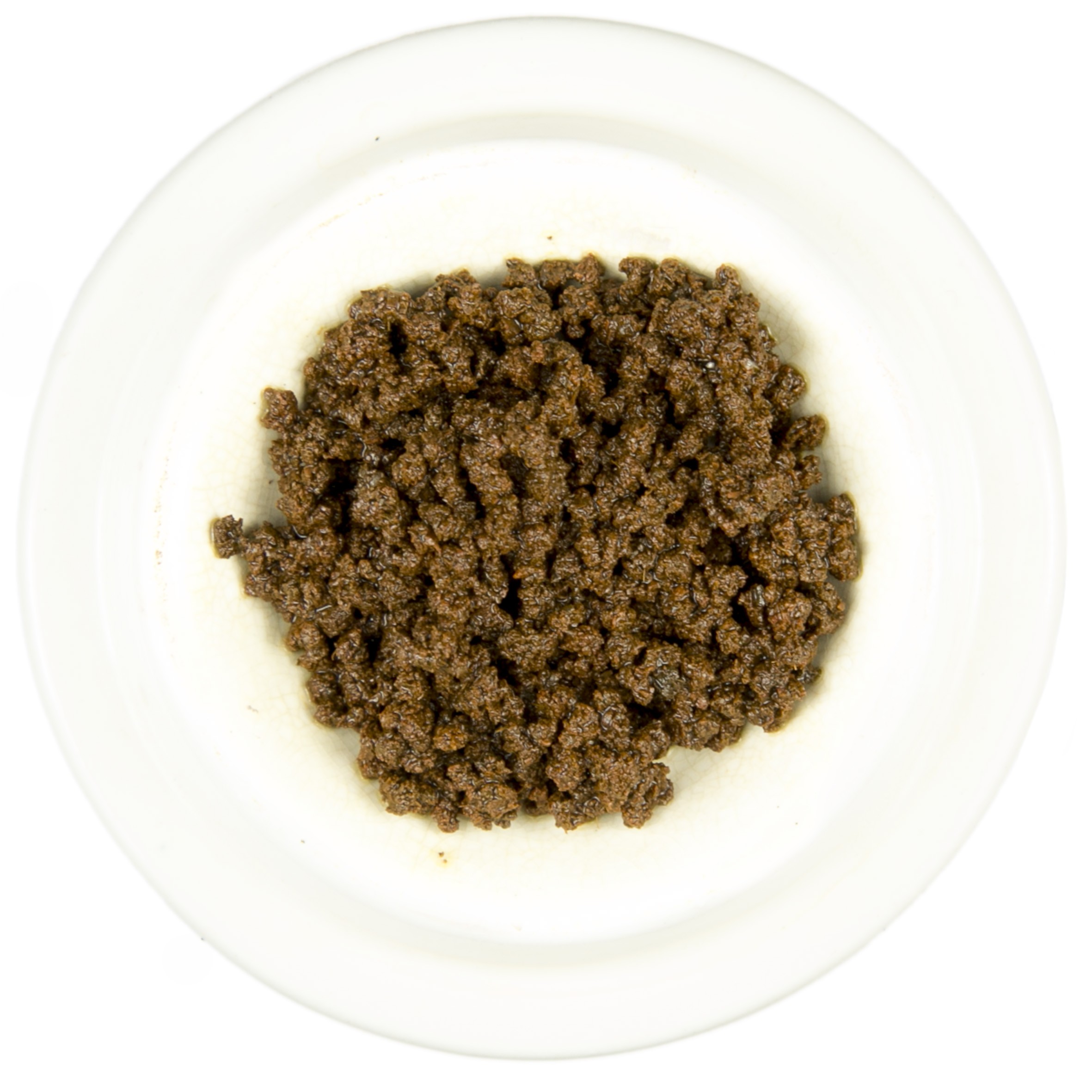Black Tea Brewing Guide

1 Teaspoon
Add 1 teaspoon per person and one for the pot.

95⁰c - 100⁰c
Boil using fresh water, at a temperature of 95⁰ - 100⁰c.

3 - 5 Mins
Steep for 3-5 minutes, depending on personal preference
About Product
-
Product Description
Assam Tea Dufflaghur BOP is a rare Black Loose Tea considered a Gunpowder Tea. This is where workers roll the young leaves into small, compressed balls, thereby providing a deep, distinctly “Assamese” character when brewed.
Expect sweet and malty notes with every sip. Best of all, we pack it fresh to order here at our Kent-based factory, ensuring quality and consistency.
About Dufflaghur Tea Estate in Assam
This renowned Tea Estate was established in 1917, located on the north bank of the Brahmaputra River in central Assam, India. It has become known for creating both CTC and Orthodox Tea.
Some 2,500 people – men and women – work the 691.18 hectares of Tea-growing land. Once the leaves arrive at the local factory, they are processed to create our Assam Tea Dufflaghur BOP.
Caffeine Levels in Assam Dufflaghur Tea
Do you want your morning cuppa to get you out of bed to start the day the right way? We all do! Which is why you’ll probably be pleased to know that Assam Dufflaghur Tea, like all types of Black Tea, contains a considerable amount of caffeine.
Specifically, it boasts 45-mg per 8-oz serving. All that’s left, it would seem, is for you to buy from The Kent and Sussex Tea and Coffee Company.
How to Make Assam Dufflaghur Estate Tea
1. Put Black Tea leaves into a Tea Infuser or Filter.
2. Place the Tea-filled accessory in a cup or mug.
3. Boil water to 100°C and pour it over the leaves.
4. Allow it to steep for 3-5 minutes for the best flavour.
How to Serve: Milk, sugar, honey or lemon – the choice is yours. Alternatively, serve black.
Tasting Notes: Imparts a malty sweetness from start to finish.
Health Benefits of Dufflaghur Assam Tea
Scientists and medical experts have studied the reported healing properties of Black Tea for several decades. The conclusions they’ve drawn are resoundingly positive.
It turns out that Dufflaghur Assam Tea has a wealth of vitamins, minerals and antioxidants capable of improving life in small yet significant ways. Notably, their work combating free radicals reduces the risk of developing numerous conditions.
And there’s more. Much more. A 2014 Korean study published in the Journal of Toxicological Research, for example, found that it has anti-ageing properties that inhibit wrinkle formation.
A study published in the American Journal of Clinical Nutrition, meanwhile, discovered that frequent consumption helps prevent mild cognitive decline in people aged fifty-five or over.
And if that wasn’t enough, preliminary research suggests that it reduces the prevalence of Helicobacter pylori in the digestive tract. This pathogen has a close association with gastritis, a condition where the lining of the stomach becomes inflamed after experiencing damage.
Finally, its anti-inflammatory properties appear to treat indigestion, nausea and bloating. It’s a win on all fronts.
-
Delivery Information
We offer reliable delivery services through Royal Mail to ensure that your orders reach you on time.
Here are the main points you should be aware of:
- Standard UK Delivery: £3.95 excluding delivery charge.
- Delivery Times: Orders are processed and dispatched within 2-5 working days but they may take longer during busy times. It is worth noting that all our orders are packed by hand in order to maintain the quality.
- Free Delivery: We are delighted to provide free shipping for UK orders over £35*. Moreover, customers from Europe can enjoy free shipping for any purchase above €75*. Furthermore, we offer free delivery in the USA for all purchases exceeding $125*. Please note terms and conditions may apply.
- Tracking: When your package is sent you will receive a tracking number via email so as to keep tabs of its progress.
International Shipping
We do ship worldwide meaning our products can be accessed by anyone around the world.
Here are some important details:
- Delivery Times: International deliveries vary based on destination, generally taking between 7-14 working days.
- Shipping Costs: International shipping costs are calculated at checkout based on your location and weight of your order. View full delivery charges for your location.
- Customs and Import Duties: Remember customs or import duties may exist depending on regulations in your country; these charges are borne by the customer.
Returns Policy
Your satisfaction is our top priority, however if for any reasons you’re not completely happy with your purchase, simply follow our returns procedure:
- Eligibility: Items returned within 30 days of receipt must remain unopened and in their original condition.
- Process: In order to return an item contact our customer service department using your unique order number after which detailed instructions will be given concerning returning them back to us securely.
- Refunds: Our aim is to refund you within 5-7 working days upon successful reception of returned goods. The refund amount will be credited to your original payment method.
For any other Enquiries or help please contact our Customer Support Team always at your service.
-
Product Reviews

 Loose Leaf Tea
Loose Leaf Tea Pyramids
Pyramids Tea Bags
Tea Bags Africa
Africa Assam
Assam Ceylon
Ceylon Chinese
Chinese Darjeeling
Darjeeling European
European Indian
Indian Japan
Japan Nepal
Nepal South East Asia
South East Asia Ayurveda Tea
Ayurveda Tea Black Tea
Black Tea Chai Tea
Chai Tea Flowering Tea
Flowering Tea Fruit Tisanes
Fruit Tisanes Green Tea
Green Tea Herbal Tea
Herbal Tea Matcha Tea
Matcha Tea Oolong Tea
Oolong Tea Organic Tea
Organic Tea Pu erh Tea
Pu erh Tea Rooibos Tea
Rooibos Tea White Tea
White Tea Asian Coffee
Asian Coffee Caribbean Coffee
Caribbean Coffee Central American Coffee
Central American Coffee South American Coffee
South American Coffee Coffee Blends
Coffee Blends Decaffeinated Coffee
Decaffeinated Coffee Espresso Coffee
Espresso Coffee Ethically Sourced Coffee
Ethically Sourced Coffee Flavoured Coffee
Flavoured Coffee Organic Coffee
Organic Coffee Single Origin Coffee
Single Origin Coffee Chocolate 1
Chocolate 1 Chocolate 2
Chocolate 2 Chocolate 3
Chocolate 3 Chocolate 4
Chocolate 4 Chocolate 5
Chocolate 5 Chocolate 6
Chocolate 6 Chocolate 7
Chocolate 7 Chocolate 8
Chocolate 8 Chocolate 9
Chocolate 9 Loose Tea Filters
Loose Tea Filters Tea Accessories
Tea Accessories Tea Bricks
Tea Bricks Tea Caddies
Tea Caddies Tea Caddy Spoons
Tea Caddy Spoons Tea Gift Ideas
Tea Gift Ideas Tea Infusers
Tea Infusers Tea Strainers
Tea Strainers




